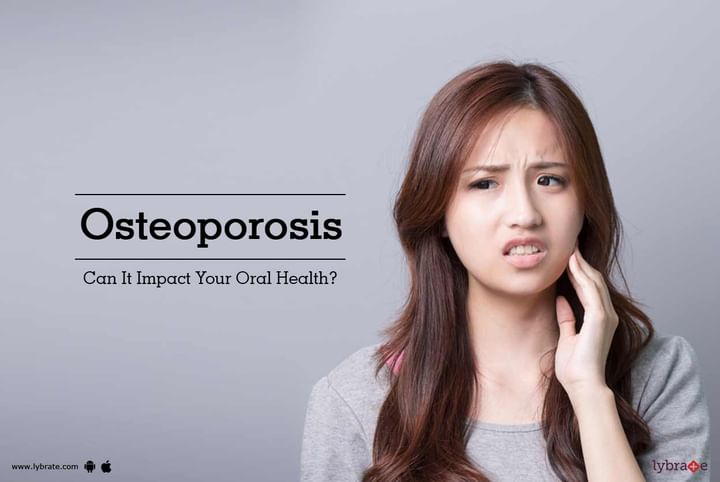Get the App
For Doctors
Login/Sign-up
Last Updated: Jan 10, 2023
BookMark
Report
Osteoporosis - Can It Impact Your Oral Health?
Dr. Maj. Gen Mahesh Chander Vsm (Retd)Dentist • 53 Years Exp.BDS, MDS - Oral & Maxillofacial Surgery, Advanced course in maxillofacial sugery
Osteoporosis is an age-related condition characterized by low bone density and fragile bones. Lack of calcium and vitamin D are the most common triggers of this condition. These are vital elements for healthy teeth as well. Osteoporosis has a direct relationship with oral health and can trigger a number of issues such as loss of teeth, gum and can cause periodontal disease. The effects of osteoporosis on oral health and affect more women. This risk increases when talking of menopausal women.
- The jawbone is one of the areas that bear the brunt of osteoporosis. The loss of bone density in this area can cause tooth loss and make teeth lose. It can also affect the gum ridges that hold dentures in their place. This can result in ill-fitting dentures that need to be frequently changed.
- Medication for osteoporosis is also linked to dental health. In rare cases, antiresorptive medicines that are prescribed to strengthen the bones can lead to a condition known as osteonecrosis. This refers to the death of a bone due to poor blood supply. Antiresorptive medication can be administered orally or intravenously with the latter having a higher risk of triggering osteonecrosis. Though it affects the hips and shoulder bones in most cases, it can also affect the jaw bone. It is marked by pain, swelling, infection and exposed bone. Loose teeth, gum infections and numbness or heaviness of the jaw are also symptoms of osteonecrosis of the jaw bone.
- The risk of suffering from osteonecrosis cannot be determined beforehand. Hence it is a good idea to see your dentist before or just after starting antiresorptive treatment for osteoporosis and to schedule regular checkups for the duration of your treatment. Dental problems if any should be treated before starting medication for osteoporosis. Osteonecrosis of the jaw bone is most commonly seen after undergoing a dental procedure that affects the jawbone and associated tissues such as a tooth extraction. Ideally, invasive dental procedures should be avoided if you are taking antiresorptive medicines. However, it can also occur spontaneously.
- Bisphosphonates are also commonly prescribed to treat osteoporosis. This type of medication slows down the breakdown of bone tissue. However, this can lead to the development of new bones. This is not a troublesome issue when it comes to bones like the hip, leg or arm bones but can be very disruptive if it affects the jawbone. This is because the jaw bone is constantly reforming and reshaping itself.



+1.svg)
